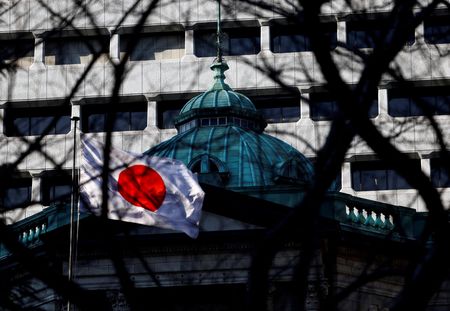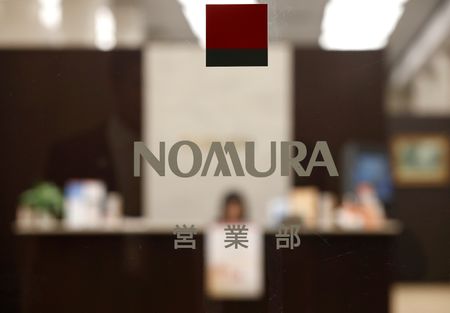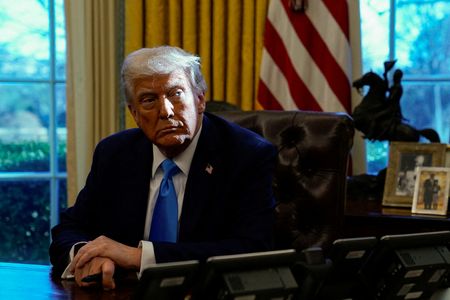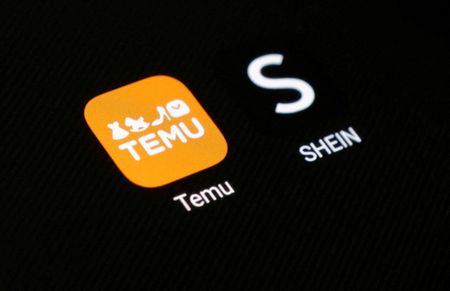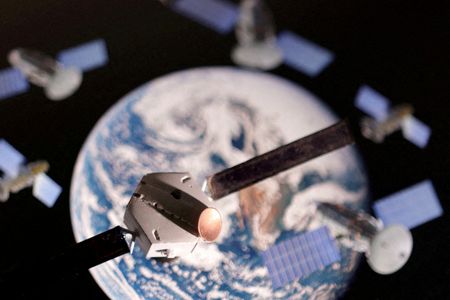By Leika Kihara
TOKYO (Reuters) -The Bank of Japan will continue to raise interest rates if underlying inflation accelerates toward its 2% target as projected, a senior central bank official said on Wednesday.
“Underlying inflation is heading toward 2% but still remains below that level now. As such, we must support economic activity with loose monetary policy,” Kazuhiro Masaki, director-general of the BOJ’s monetary affairs department, told parliament.
“Having said that, we will continue to raise interest rates and adjust the degree of monetary support, if underlying inflation accelerates toward 2% as we project,” he said.
The remarks suggest the BOJ is maintaining its resolve to steadily push up borrowing costs despite rising uncertainty from U.S. President Donald Trump’s tariff policies, which is heightening market volatility.
Japan’s core consumer inflation hit 3.0% in December, marking the fastest year-on-year pace in 16 months and exceeding the BOJ’s 2% target for nearly three years.
But the central bank has said it focuses on underlying inflation, or the broad trend of price moves driven by domestic demand that is measured by various indicators, in judging whether inflation will sustainably hit its 2% target.
In January, the BOJ’s board raised its forecast for core-core CPI, which strips away the effect of volatile fresh food and fuel costs, to 2.1% for fiscal 2025, up from a previous estimate of 1.9% in October.
Japan’s post-pandemic price increases have been driven mostly by rising raw material costs, blamed in part by higher import costs from a weak yen, Masaki said.
Such cost-push inflationary pressure is likely to dissipate, while rising wages are leading to moderate increases in services prices, he added.
“We expect underlying inflation to gradually head toward our 2% target,” Masaki said.
Economy Minister Ryosei Akazawa told the same parliament session the government’s focus would be to eradicate Japan’s deflationary mindset, including by taking measures to encourage firms to raise wages.
The BOJ raised short-term interest rates to 0.5% from 0.25% in January reflecting its conviction that Japan was making progress in sustainably achieving its 2% inflation target.
Governor Kazuo Ueda has signaled his readiness to keep raising rates if wages continue to increase and underpin consumption, thereby allowing firms to keep hiking pay.
Data released on Wednesday showed regular pay, or base salary, rose 2.7% in December from a year earlier. Adjusted by inflation, real wages rose 0.6% year-on-year thanks to a bump from winter bonuses.
The data, coupled with recent hawkish signals from the BOJ, pushed up Japanese government bond (JGB) yields to multi-year highs on Wednesday as traders braced for further rate hikes.
“Markets are becoming hyper-sensitive to anything that could heighten the chance of further rate hikes, which is making investors wary of buying bonds,” said Naomi Muguruma, chief bond strategist at Mitsubishi UFJ Morgan Stanley Securities.
Hawkish BOJ board member Naoki Tamura, who had called for raising short-term rates at least to 1.0%, will deliver a speech and hold a news conference on Thursday. Another board member Hajime Takata, formerly a bond strategist, will speak publicly on Feb. 19.
BOJ Deputy Governor Shinichi Uchida, who has a track record of offering explicit signals on the monetary policy outlook, will also deliver a speech and news conference on March 5. The BOJ next meets for a policy meeting on March 18-19.
(Reporting by Leika Kihara; Editing by Kim Coghill and Sam Holmes)

